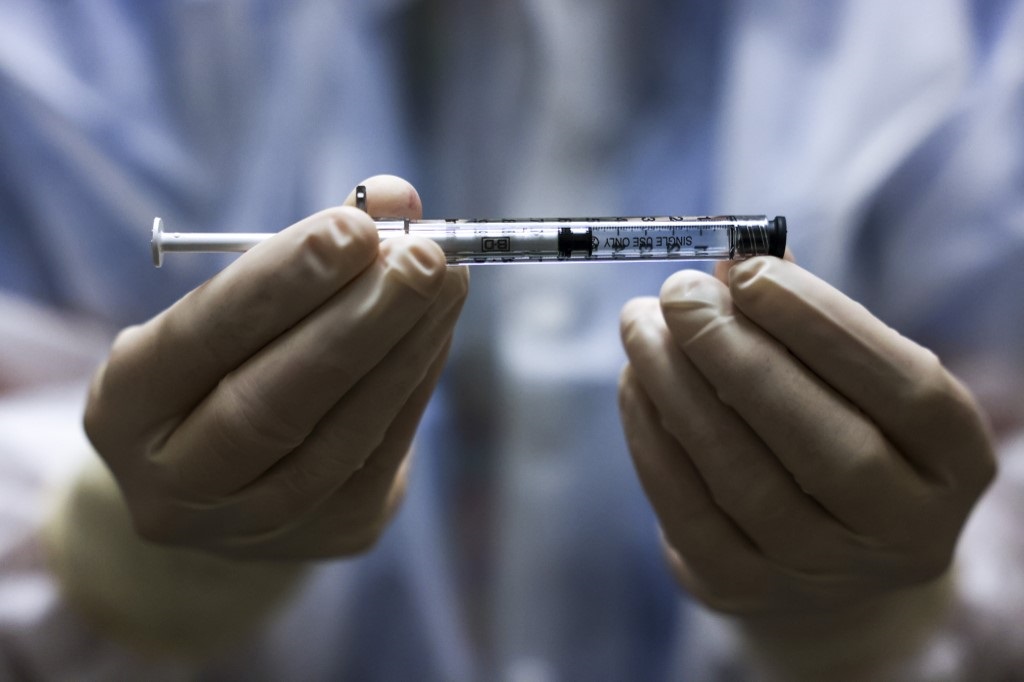
- Sub-Saharan Africa in 2020 suffered its worst contraction on record, but the region's growth will bounce back in 2021, says the International Monetary Fund (IMF).
- Per capita income is only expected to reach pre-Covid-19 levels only in 2025, as more people have been "thrust" into poverty.
- Accelerated access to vaccines is critical for the region's health and economy.
The Sub-Saharan Africa region's GDP is expected to recover from a record low reported in 2020, but it will take per capita income much longer to reach pre-Covid-19 levels.
The International Monetary Fund (IMF) on Thursday held a briefing on the region's economic outlook. The region contracted to -1.9% due to the impact of the Covid-19 pandemic in 2020, but the IMF now expects a bounce-back of 3.4%. Still, the region will be the slowest growing in the world in 2021.
The recovery will not be without challenges. Policymakers will have to deliver Covid-19 vaccines and restore public balance sheets that took a knock to respond to the health crisis, the IMF noted.
"Sub-Saharan Africa is continuing to grapple with an unprecedented health and economic crisis," said Abebe Aemro Selassie, director of the IMF's African Department. Selassie noted that the second wave "outpaced the scale and speed" of the first wave. "Many countries continue to face or are bracing for further waves, particularly as access to vaccines remains scant," said Selassie.
"While the region is projected to grow by 3.4% in 2021, per capita output is not expected to return to 2019 levels until after 2022," he added. Per capita income, a measure of a standard of living, is the average income earned per person in a country.
Thrust back into poverty
Selassie said that many had been "thrust" back into poverty due to the pandemic's harsh economic impact. "In many countries, per capita incomes will not return to pre-crisis levels until 2025. The number of extreme poor in sub-Saharan Africa is projected to have increased by more than 32 million."
The region has also experienced learning loss, with students missing teaching days, more than four times that of advanced economies.
"While pandemic-related risks dominate, other factors such as access to external financing, political instability, domestic security, or climate shocks could jeopardise the recovery," said Selassie.
According to Selassie, the cost for most countries to vaccine at least 60% of their populations will require a 50% increase in health spending. For some countries, this could exceed 2% of their GDP.
Selassie said it is a "global public good" for the international community to ensure the region can receive vaccines. Apart from multilateral facilities such as the COVAX consortium for vaccine distribution, wealthy countries should ensure excess doses are redistributed quickly.
Domestically the IMF expects the SA economy to grow by 3.1% in 2021, following a contraction of 7% - the worst economic shock in 90 years.
Get those vaccines
In its April 2021 Monetary Policy Review, the SA Reserve Bank (SARB) highlighted the importance of distributing vaccines for the domestic economy's recovery.
Government recently announced that the distribution of Johnson & Johnson vaccines would be halted, this after cases of blood clots in six patients in the US were reported. The US Food and Drug Administration similarly halted distributions of the vaccine. In South Africa, none of the 290 000 patients who received the doses reported clots.
The Reserve Bank noted that the Covid-19 pandemic is unique because it is the first disease that requires "concurrent worldwide vaccination". This inevitably places pressure on vaccine production and distribution.
"The difficulty in accessing and distributing vaccines could delay the achievement of herd immunity and thereby slow the global economic recovery," the review read.
The SARB also warned against "stockpiling" of vaccines by richer countries - which could leave the COVAX consortium, which poorer nations depend on, in short supply. "Uneven access to vaccines could prolong the pandemic and raise the risk of further vaccine-resistant mutations of the virus," the review read.
Citing a study, the SARB said the delay in vaccine distribution in developing countries could wipe off $9.2 trillion off world output, affecting advanced economies the most. This, in turn, will impact developing economies which will lose export markets and suffer reduced growth.
The SARB added that a slow pace of vaccination in the sub-Saharan Africa region would also impact South Africa as it is a significant trading partner.
The bank reiterated calls for excess supplies by advanced economies to be released, along with sorting out logistical challenges impacting production and distribution of vaccines and increasing supplies of approved vaccines.
